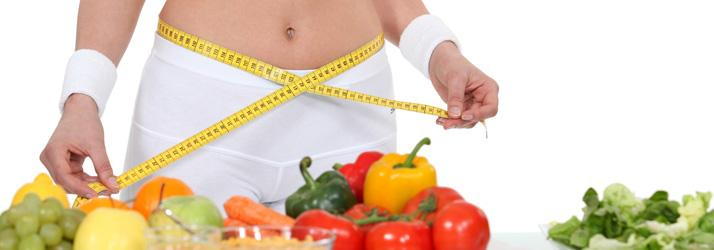Back Pain Diet Miami Beach

- posted: Jan. 16, 2019
Back Pain and Diet Miami Beach
Is there any correlation to diet and back pain? If you are working on your new years resolution to lose weight this can actually help you with back pain. Dr. Gordon Braun and the staff have solutions for Back Pain and Diet in Miami Beach. A couple of things are obvious, less weight and less strain on your back. Eating healthy and losing weight will lower the toxins in your body that cause inflammation. Your level of movement will be greater with the weight-loss that comes from your diet. So which diet is most effective for Back Pain relief? Is it the Keto-Diet or the South Beach diet? Here is an Idea of what to eat to for back pain relief.
Eat Your Vegetables
A plant-based diet that includes flax and chia seeds, is probably your best bet to avoid inflammation, especially when eaten in combination with omega-3-rich cold water fish like salmon, mackerel, sardines, herring, black cod, tuna, and trout.
"Deeply colored fruits and vegetables are a key part of an anti-inflammatory diet," says Dana Greene, MS, RD, LDN, a nutritionist in Brookline, Massachusetts. If you’re looking for foods that reduce back pain and are loaded with nutrition, try carrots, beets, sweet potatoes, cherries, berries, grapes and red wine, pomegranate, and watermelon, she says. Herbs and spices, including basil, cinnamon, ginger, rosemary, garlic, curcumin, onions, oregano, and turmeric tend to be especially rich in anti-inflammatory agents, so season generously. Also, drink healthy herb teas and true teas (green, oolong, and white).
Dr. Perry adds that olive oil, green tea, and brightly colored fruits and vegetables have all been shown to reduce inflammation in cartilage in the spinal column, which helps to control back pain and stiffness. When eating vegetables, think the greener the better, he says. Kale, spinach, and broccoli are all list-toppers for an anti-inflammatory diet with back-pain-fighting properties.
Other good food choices for an anti-pain diet: avocados; nuts (walnuts, almonds, pecans, and Brazil nuts); lean proteins, such as chicken and turkey; beans; and cocoa.
Avoid These types of Foods to Reduce Back Pain
Robin Barrie Kaiden, RD, CDN, a registered dietitian at Robin Barrie Nutrition in New York City, says that some people avoid nightshade vegetables (tomatoes, eggplant, white potatoes, and peppers) as part of an anti-inflammatory diet. "No research supports this, however," she says. "To find out if these vegetables contribute to inflammation in your body, don't eat them for two weeks and see if your symptoms disappear — just like you should do with any other potentially sensitive food." Always talk to your doctor or a registered dietitian when making changes to your diet.
Other foods to avoid? Processed foods, fast foods, and saturated fats. All of these fuel inflammation. This includes white bread, pasta, rice, sugary drinks and snacks, fried foods, and anything with partially hydrogenated oil in the ingredients, often found in preservative-packed products with a long shelf-life, such as chips, crackers, and pastries. (Opt for poly- or monounsaturated oils, such as canola or olive oil, when cooking.). Stay away from caffeine and alcohol as well, Perry says.
Calcium Factor
Another way to keep back pain at bay is to make sure you're getting enough of the right nutrients, such as magnesium,calcium and vitamin D. Bones are the body’s storage for calcium. "As you age, it is hard to maintain bone mass, which can lead to such conditions as osteopenia or osteoporosis," Perry says. "These diseases can weaken the vertebrae in your spine. Calcium contributes to bone mass, helping you avoid those conditions."
A 2010 report from the Institute of Medicine (IOM) gave new guidelines for daily calcium supplementation. These definitions are commonly referred to as the recommended daily allowance. According to the IOM, you shouldn't consume more than 2,000 milligrams of calcium a day (either through foods or supplements), says Kenneth Hansraj, MD, chief of spine surgery at New York Spine Surgery and Rehabilitation Medicine in Poughkeepsie, New York.
"Gone are the days when more is better," Dr. Hansraj says. Studies show that if you take a high dose of calcium supplements, you increase your risk for heart problems and atherosclerosis, which involves plaque forming in your arteries. Consuming too much calcium can also cause bone fractures.
Calcium should come from natural sources, Hansraj says. Natural food sources for calcium include yogurt, milk, and cheese, as well as leafy green vegetables. If you're not able to obtain enough calcium from your diet, then talk to your doctor about whether supplements are right for you. Teens, for instance, require 1,300 mg of calcium a day and older people about 1,000 mg daily, he says, but "do not supplement more than 500 mg a day.” Instead, Hansraj suggests trying to get more calcium from your diet.
Nick Shamie, MD, an associate professor of spine surgery at UCLA in Los Angeles and a spokesperson for the American Academy of Orthopaedic Surgeons, adds a word of caution: When fractures occur, just using calcium supplements is not enough. "Consult an orthopedic surgeon and musculoskeletal specialist to devise a complete medical plan to deal with your condition," Dr. Shamie says. "This regimen may include medications, such as bisphosphonates that help build bone, and regular exercise."
Here is a little more information on back pain and diets.
Location
Find us on the map
Cafe of Life Chiropractic
2555 Collins Ave Suite C4
Miami Beach, FL 33140, USA
Office Hours
Our Regular Schedule
New Patients only 10 am to 12 pm
2:00 pm - 6:00 pm
Closed
10:00 am - 1:30 pm
3:30 pm - 6:00 pm
Closed
10:00 am - 1:30 pm
Closed
Closed